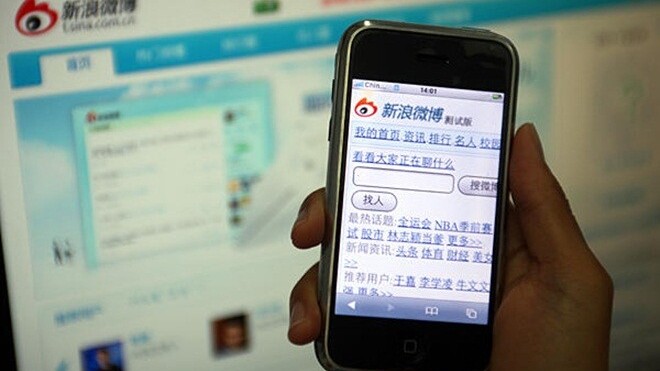
The Chinese government is to introduce a mandatory real-name policy to the country’s microblog services, according to a report from iStockChina which cites an announcement from China’s official broadcaster, CCTV.
The real-name policy is one of 16 regulations for the country’s Twitter alternatives, which include Sina Weibo and Tencent Weibo, and it is a move that the government has been rumoured to be pursuing for some while. Beijing is looking to increase accountability online, having recently agreed a set of new content principles with leading Chinese Internet firms.
As Charles Custer at Penn Olson explains, the regulation is not explicitly aimed at restricting free speech on services, but it is open enough that it can be manipulated for more sinister purposes:
The regulation is presented as an effort to cut down on zombies and the buying and selling of followers. However, the regulation is also a way for the government to exert some pressure on microblog users who spread political and news stories authorities don’t want spread.
The real-name policy is more akin to official verification than a Google+ style insistence on given names. Sina, which is China’s most popular microblog provider, already encourages users to link their national ID to their account by offering badges and other incentives to do so. However, journalists and others who use Weibo to share content that pushes the envelope, will be less reluctant to sign up.
China’s government, alongside other authorities in Asia, have handed out severe punishments to Internet users that have contributed “harmful information” online, which can range from statements to news reports, or even jokes — like the one this woman retweeted — that the state would prefer to see kept quiet.
The policy will begin right away for new Weibo users. Existing members given a three month window to authenticate or they may lose posting privileges, according to a tweet from Kaiser Kuo, a high profile China commentator and Baidu’s director of communication.
Forcing users to verify accounts could have a huge impact on the usage of Sina Weibo, which many in China have flocked to as an alternative to heavily regulated media, and as an outlet for discussing key topics affecting the country. It remains to be seen whether increased accountability will see many leave.
The government recently increased pressure on reporters in China who are using Weibo services to help source new leads and stories. New regulations introduced in October, means all media must verify stories found online before reporting them, giving the government and other ‘information holders’ greater control over the releasing of information.
Twitter, Facebook and other western social media continue to be blocked in China, which has an important factor behind the success of local services like Sina and Tencent Weibo services, Renren, Kaixin and others.
Update: The initial ruling was made for Internet firms based in Beijing, however, less than a week after this news, it has been confirmed that the measures will be enforced on all microblogging services across China, as the Washington Post explains.
Get the TNW newsletter
Get the most important tech news in your inbox each week.




